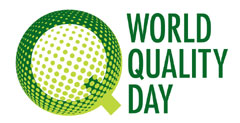 What is the International Day of Happiness?
What is the International Day of Happiness?
It’s a day to be happy, of course! Since 2013, the United Nations has celebrated the International Day of Happiness as a way to recognise the importance of happiness in the lives of people around the world.
Happiness is a fundamental human goal. The United Nations General Assembly recognizes this goal and calls for “a more inclusive, equitable and balanced approach to economic growth that promotes the happiness and well-being of all peoples.”
In 2015, the UN launched the 17 Sustainable Development Goals, which seek to end poverty, reduce inequality, and protect our planet – three key aspects that lead to well-being and happiness.
The United Nations invites each person of any age, plus every classroom, business and government to join in celebration of the International Day of Happiness.
 Background
Background
The General Assembly of the United Nations in its resolution 66/281 of 12 July 2012 proclaimed 20 March the International Day of Happiness, recognizing the relevance of happiness and well-being as universal goals and aspirations in the lives of human beings around the world and the importance of their recognition in public policy objectives. It also recognized the need for a more inclusive, equitable and balanced approach to economic growth that promotes sustainable development, poverty eradication, happiness and the well-being of all peoples.
The resolution was initiated by Bhutan, a country which recognized the value of national happiness over national income since the early 1970s and famously adopted the goal of Gross National Happiness over Gross National Product. It also hosted a High Level Meeting on « Happiness and Well-Being: Defining a New Economic Paradigm » during the sixty-sixth session of the General Assembly.
 Assembly in its
Assembly in its 